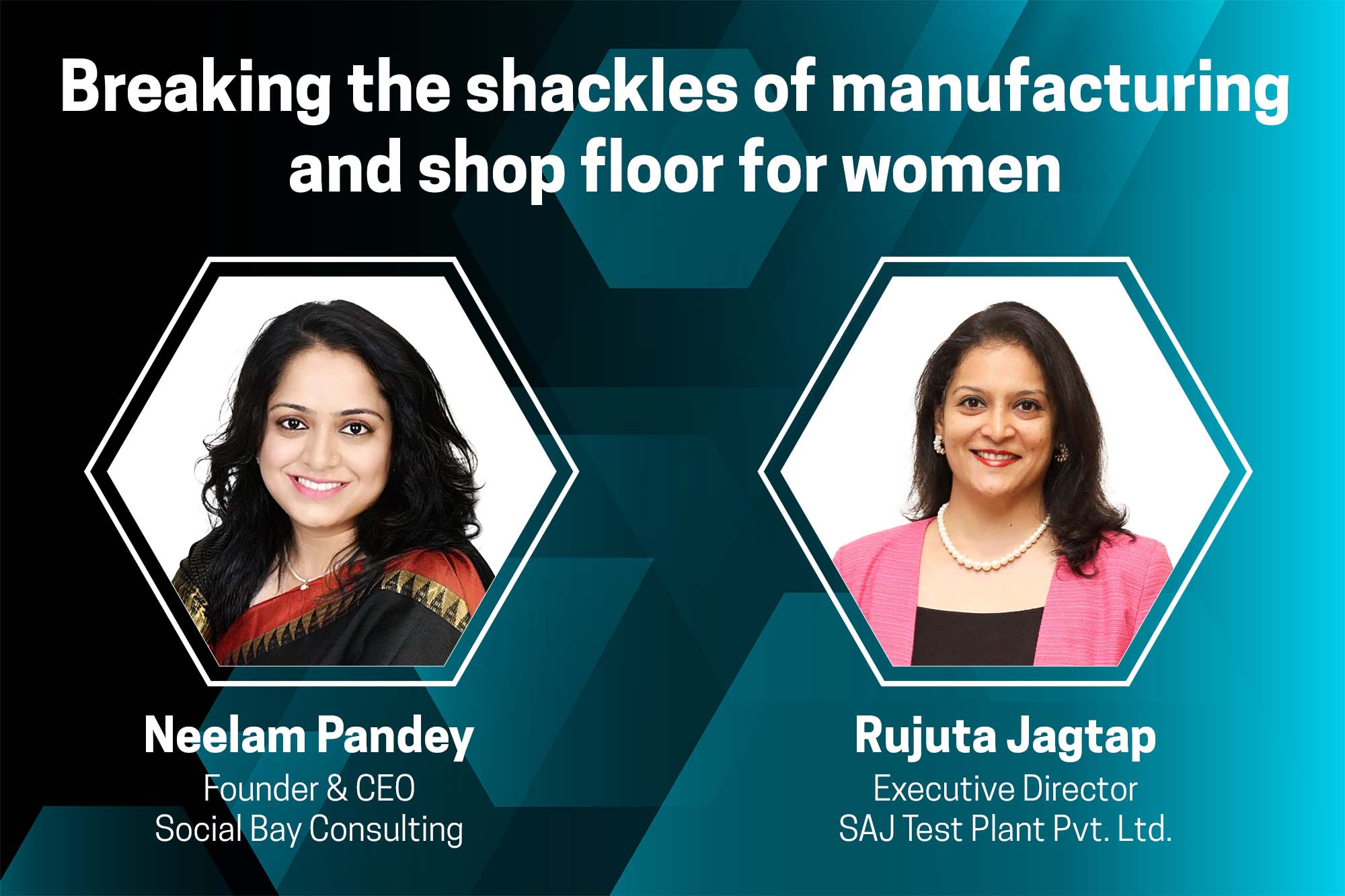The Indian manufacturing sector is navigating towards women-oriented skills
By OEM Update Editorial June 26, 2024 5:02 pm IST
Indian companies now recognise the unique skills of women, such as higher learning ability, focus, and consistent output, as crucial in the industry. As a result, India’s manufacturing sector has seen a significant shift in recent years.
India’s manufacturing sector, traditionally male-dominated, has seen a significant shift in recent years, with more women entering roles in sectors like automotive, engineering, electronics, and allied industries, which were previously considered unsuitable for women. Recent data from the Annual Survey of Industries (ASI) reveals that of the 8 million workers employed in India’s formal manufacturing sector in 2019–20, 1.6 million (19.7%) were women, indicating growing participation compared to negligible representation previously. This transformation is not just a nod towards diversity but a strategic realisation of the unique skill sets women bring to the manufacturing sector.
Women’s Manufacturing Participation
In the past, women’s participation in manufacturing typically ranged from 10 to 20 per cent across different sectors. However, companies now recognise the unique skills of women, such as their higher learning ability, focus, and consistent output, as crucial in the industry. Women also tend to excel when handling fine components on assembly lines, with some seeing their productivity increase by up to 100 per cent, especially in the EMS sector.
Trends in female workforce participation
An encouraging shift is underway in some of India’s major manufacturing hubs, leading the way in enforcing women’s representation on production floors. States like Tamil Nadu, Karnataka, Uttar Pradesh, and Maharashtra are reporting upward trends in the intake of female talent in manufacturing, especially in EMS units. This change is a surge in investments in new EMS facilities across these states, which are hiring local women for their workforce.
India is seeing an increase in women aged 18–30 entering the manufacturing sector, particularly in assembly line work within the EMS sector. This trend is driven by increased acceptance of women in factory roles and state encouragement for EMS companies, aiming to boost industrial output and capitalise on the potential of women workers.
Female manufacturing employee challengesDespite advancements, female manufacturing employees still face gender-based challenges such as mental barriers, a lack of job awareness, and physical demands like gloves, prolonged sitting, and repetitive tasks. Furthermore, first-generation women workers lack proper counselling regarding typical workplace conditions like wearing protective equipment for long hours or undertaking repetitive manual tasks, causing quitting. Moreover, women’s attrition rates, though generally lower than men’s, are influenced by life stages such as marriage and childbirth.
Around 50 per cent of women drop out of manufacturing jobs even before hitting 30, within months of rejoining work post-maternity, partly due to unaffordable or scarce crèche options. Unless addressed holistically, manufacturing sectors stand to continually lose out on the significant contributions of female workers due to evolving familial responsibilities. Ensuring health, safety, and well-being, along with providing hygienic work conditions, medical support, and accommodations for late working hours or night shifts, are crucial to retaining female talent. Manufacturing workplaces catering to women’s well-being will be best positioned for leveraging diversity and gender-inclusive growth.
To improve the working environment for women in electronics manufacturing, companies should invest in health and safety measures, employee training, and fair compensation. These measure health protocols, comfortable workstations, protective equipment, training, and investment in employee skills, all of which enhance productivity and job satisfaction.
Gender equality in the manufacturing industry
Amending labour regulations to improve security, allow flexible work shifts, and provide dormitory accommodations is crucial for advancing female participation in manufacturing. Some large-scale organisations have already adopted these practices to address security concerns. This will, in turn, help more women and result in increased participation in the workforce.
The ongoing shift towards gender equality in the manufacturing industry requires overcoming gender-based challenges, adapting workplace practices, and supporting policies to sustain momentum and contribute to women’s contributions.
Cookie Consent
We use cookies to personalize your experience. By continuing to visit this website you agree to our Terms & Conditions, Privacy Policy and Cookie Policy.











